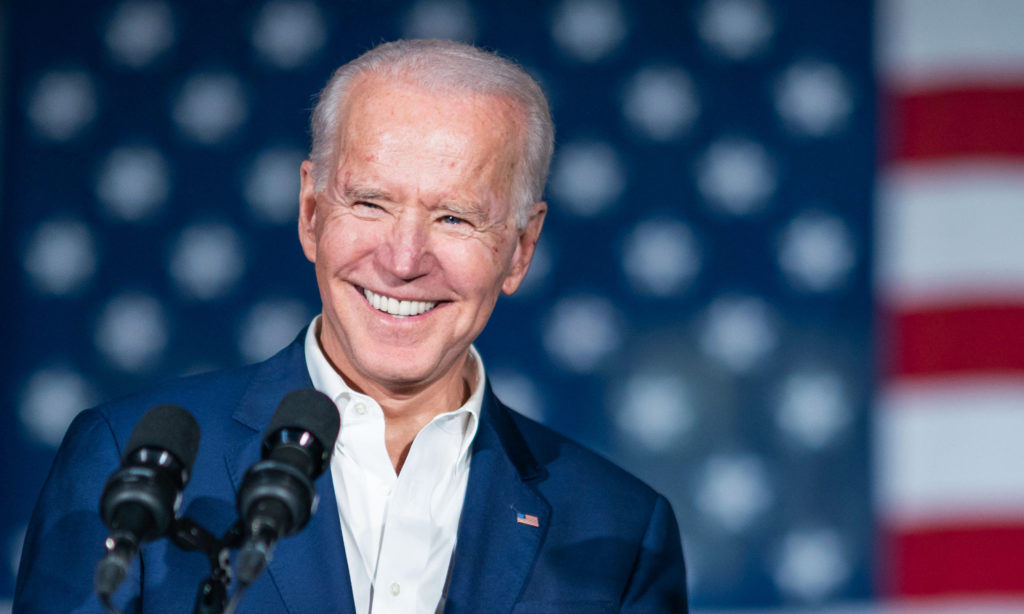
The head of Israel’s spy agency is set to be the first Israeli official to meet with new United States President Joe Biden in the coming weeks, with plans to discuss conditions for the US rejoining the Iran nuclear deal according to a Saturday report from Israel’s Channel 12 news. Mossad chief Yossi Cohen is expected to visit Biden in Washington to ask the US impose key restrictions on Iran—including nuclear program limits and ending support for Hezbollah terrorists—before signing back on to the 2015 Iran nuclear deal, known as the Joint Comprehensive Plan of Action (JCPOA).
Other conditions according to the report, which was republished by The Times of Israel, include stopping the enrichment of uranium for nuclear fuel, ending the construction of advanced centrifuges that are part of the fuel creation process, and allowing the United Nations’ International Atomic Energy Agency (IAEA) unfettered access to review Iran’s nuclear program.
The Mossad leader’s mission to Washington comes as the Biden Administration is widely expected to eventually rejoin the Iran nuclear accord, undoing the Trump Administration’s exit from the flawed deal and subsequent resumption of crushing American sanctions on Iran. However, the conditions for the US alleviating those sanctions remains vague, with White House spokesperson Jen Psaki telling reporters last week the Biden Administration is expected to discuss Iran with “partners and allies.” She did not go into specifics on what Biden wants from a deal with Iran, although her words indicated step one will be restarting the nuclear deal with other matters addressed later, according to a summary of her comments published to the White House website.
“The President has made clear that he believes that through follow-on diplomacy, the United States should seek to lengthen and strengthen nuclear constraints on Iran and address other issues of concern. Iran must resume compliance with significant nuclear constraints under the deal in order for that to proceed,” said Psaki.
Other talks with Israel about Iran are already in the works. Israeli National Security Council head Meir Ben-Shabbat spoke with his new US counterpart Jake Sullivan on Saturday evening, with an Israeli press release saying “the two agreed to discuss soon the many topics on the agenda including Iran, regional issues and advancing the Abraham Accords” Middle East peace deals.
Interestingly, Iran was not mentioned in the US press release on the call between National Security Advisor Sullivan and Meir-Shabbat, while Israel’s diplomatic normalization with its Arab neighbors was highlighted. Instead of mentioning Iran by name, the White House website said Sullivan “reaffirmed President Biden’s unwavering commitment to Israel’s security” and confirmed they would “closely consult with Israel on all matters of regional security. He also extended an invitation to begin a strategic dialogue in the near term to continue substantive discussions.”
Sullivan is no stranger to the JCPOA—rather, he was a key player in putting it together. Dr. Michael Oren, former Israeli Ambassador to the US, noted in November on Twitter that Sullivan “negotiated with Iran behind Israel’s back to establish the nuclear deal that threatens every Israeli, the Middle East, and the world.”
The 2015 nuclear accord has been repeatedly criticized for being too lenient on Iran and allowing restrictions on Iran to expire, rather than permanently prohibiting Iran from taking steps that could be used for nuclear weapons. The JCPOA was established under the leadership of former US President Barack Obama, for whom current President Biden served as Vice President. That history, coupled with pressure from Iran and even European allies that have stayed in the deal, reinforces Biden’s stated plans to eventually return to some type of nuclear deal with Iran. Israel is apparently trying to get their input included in the final decision, as the current plans from the Biden Administration regarding Iran remain unclear.
What’s very clear is how seriously Israel takes the Iranian nuclear program. In his congratulations message to Biden upon his taking office, Israeli Prime Minister Benjamin Netanyahu said in a statement released by his office, “I look forward to working with you to further strengthen the US-Israel alliance, to continue expanding peace between Israel and the Arab world and to confront common challenges, chief among them the threat posed by Iran.”
(By Joshua Spurlock, www.themideastupdate.com, January 24, 2021)
